How to Buy a Website or a Blog: Step-by-Step Guide for 2024
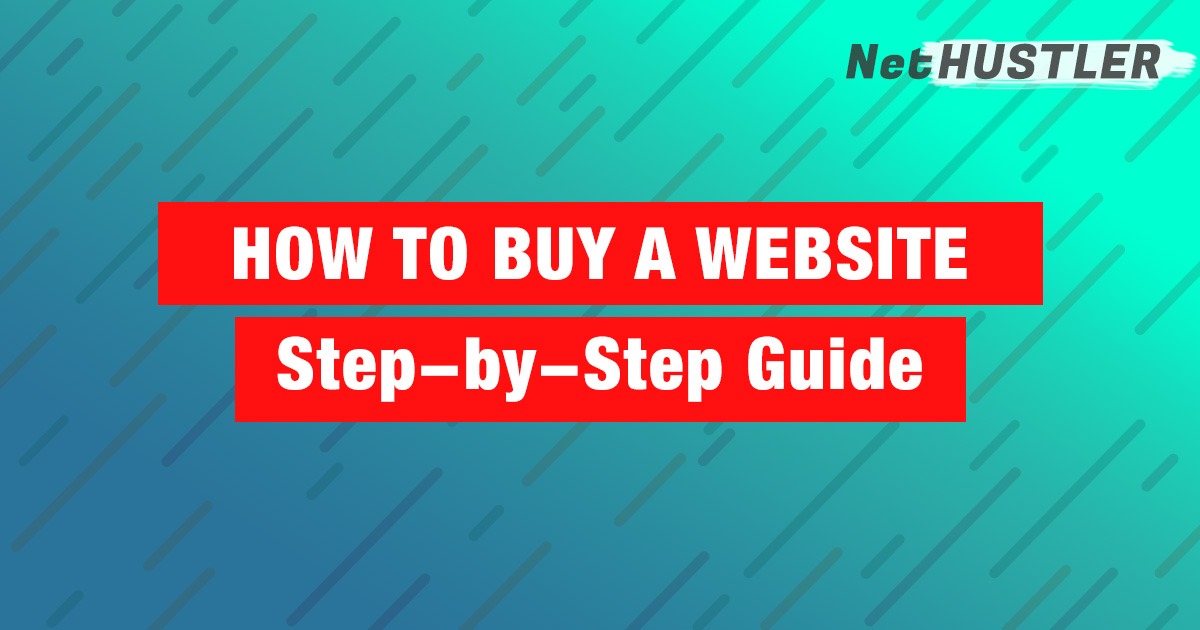
There are many reasons to buy a website, one of the main ones being that it’s easier and you start ahead. So if you want to learn how to buy a blog or a website then this guide is for you.
A short warning though, buying websites especially established ones can be a bit expensive so you need to do your due diligence carefully before you start.
In this guide, you’ll learn why it can be a great idea to buy a blog, what to look out for when doing research, and how to actually go through the whole process.
Note: The following content was reviewed for accuracy and to make sure it’s up to date even in 2024.
5 Reasons why you should buy a website or a blog
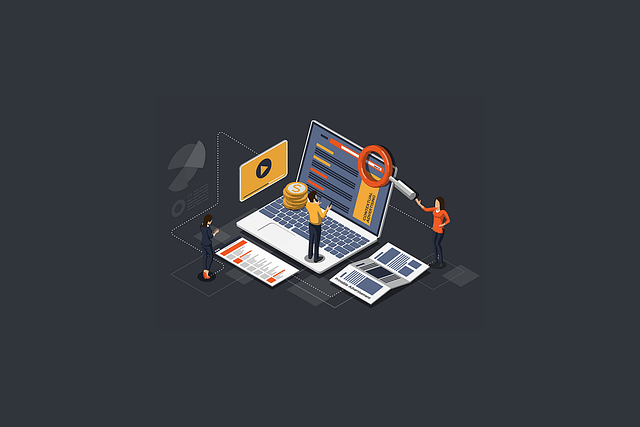
1. Buying a website is easier than creating one
There are many reasons to start a blog, but sometimes maybe you don’t want to waste too much time creating it and adding posts. So if you just want to get blogging as soon as possible, then buying one makes sense.
Especially if you don’t know how to build one yourself from scratch.
Sometimes it can get a bit complicated between choosing a domain name and then buying hosting and finally building the actual website with either custom coding or by using a platform such as WordPress.
Even though you could literally create a website or start a blog in 15 minutes or less, some people simply have no desire in learning how to do it or they simply prefer someone else to do it for them just for the peace of mind.
2. Buying a blog gives you a head start.
Another great reason to buy an established website or blog is that it will give you a head start in your internet marketing journey.
This of course only applies if the website that you buy already receives traffic and makes some money.
You should look to buy blogs that have some good SEO metrics and quality backlinks done.
This will save you a lot of time in the long run, because compared to new websites, it’s way easier to do SEO on older domains and websites (yes this is not a myth and it’s pretty much known that a new site will struggle to get traction in the first few months)
But not only that, even if the website doesn’t receive any traffic or if it makes no money, it might still be worth it if it has great and unique content on it.
3. Buy a website if you don’t want to write too much content
As I mentioned above, if the site doesn’t get too much traffic or makes no money, it might still be a good idea to buy it if it has great content on it.
My biggest struggle for the past 13 years of internet marketing has been with content.
I can do pretty much anything else, but I dislike writing, especially in niches or in sites that I don’t know anything about.
That’s why the only content that I write is for the NetHustler blog, and I rarely even guest post.
So even if I have a ton of other websites, I either buy them with the content already written or I hire content writers.
If you’re in the same boat, then it might make more sense for you to purchase a blog that has a ton of articles already written.
4. Buy and flip websites for profit
You could also get websites and blogs at a cheaper price, try to improve them a bit, and then flip them for a profit.
There are many marketers who are doing this and they can earn anywhere from a few hundred dollars each month to hundreds or thousands and even millions.
I’ve done website flipping in the past when I was just starting out and it was and still is a great business model, if you’re a bit technologically inclined and know how to perform certain tasks with ease.
5. Buy a competitor’s website
If you’re in a competitive niche, it might be worth it to go look around and see if you can just outright buy your competition.
Sure the costs might be higher at first, but if you take into consideration how much money you’re losing by having visitors going to other sites instead of yours, then it would make sense to buy them.
This is going to be a bit tougher to achieve since more than likely your competition will ask for some extravagant amount of money, but if you’re good at negotiating, maybe you can strike a deal and you get to acquire their site after all.
Places where you can buy a website
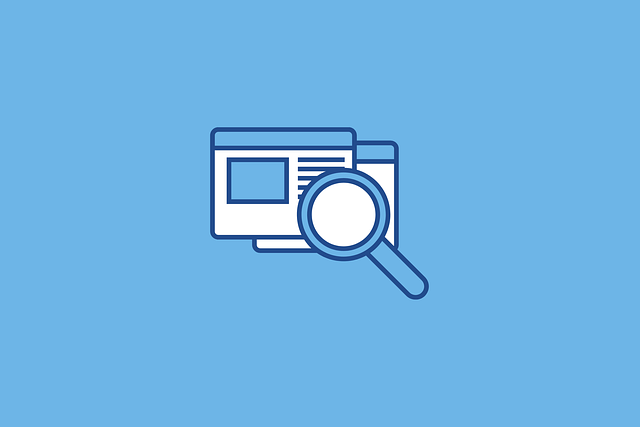
If you’ve decided that it makes sense to purchase a website then it’s time to go ahead and find one that’s for sale.
There aren’t that many places to buy websites from. At least not that many that are reputable, but here are a few of them:
Flippa
Flippa is an amazing platform to sell and buy websites, apps, e-commerce stores, and domain names.
I’ve been using Flippa for about 10 years now as a seller and a buyer and it’s pretty easy and safe to use.
Flippa is a great place to buy a blog because you will get to see a lot of metrics such as traffic and revenue that are verified by them.
This doesn’t mean that you shouldn’t still do your full research though.
The way it works is pretty straightforward, you navigate to the “Websites” category, you choose established or new websites and then you can take a look at what websites are for sale at that moment.
You can even sort properties based on the site’s niche, amount of traffic it gets, revenue, age of the site, and more.
To buy a site through Flippa you simply click on an auction and either bid on it or straight-up buy it for the BIN (buy it now) price.
If you go the BIN route it’s better to try and negotiate with the seller before, maybe you can get it at a lower price.
If you’re bidding on it, however, and the reserve of the site is not met, you should ask the website seller by private message or by leaving a comment and asking them about the reserve price.
The reserve price is basically the least amount of money that the seller will accept from others who are looking to buy the website.
Most sellers on Flippa are pretty awesome, and they will sometimes include a lot of free things in the mix.
For example:
- they can transfer the site for you for free
- offer to help you with anything that’s related to the site for an extra few weeks
- instruct you on how to properly run the website
- where to buy content from
- how to promote the website even more
- and many more things (depends on the seller really, some might not offer anything extra at all, it happens)
Other places to buy a site
There are a few more places to buy websites from, hover none of them are really as complete or as popular as Flippa. Meaning they will have fewer sellers and websites that you can buy.
Some popular extra options:
Empire Flippers – Similar to Flippa, but focused more on premium quality websites that earn thousands a month and can sell for hundreds of thousands or even millions.
Motion Invest – Focused more on niche sites with an average monthly income of $2000 or so. They buy the websites themselves and then sell them on their platform but you can also buy from other sellers.
eBay – Yes you can buy sites on eBay too, even though it’s not the go-to place for this sort of transaction anymore.
Internet Marketing Forums – Plenty of popular internet marketing forums have a section for selling and buying blogs and other IM related services
Directly from the owner – Sure this one might not be a subtle way to do things, but you can always ask the website owners directly if they are willing to sell their site. You can do that via their contact page, an email from whois data, or through social media.
I would stick to Flippa if I were you and just starting out. I’m not affiliated with them in any way I just believe that the whole process is much easier and smoother to buy a website through their platform.
What to Research Before You Buy A Blog / Website:
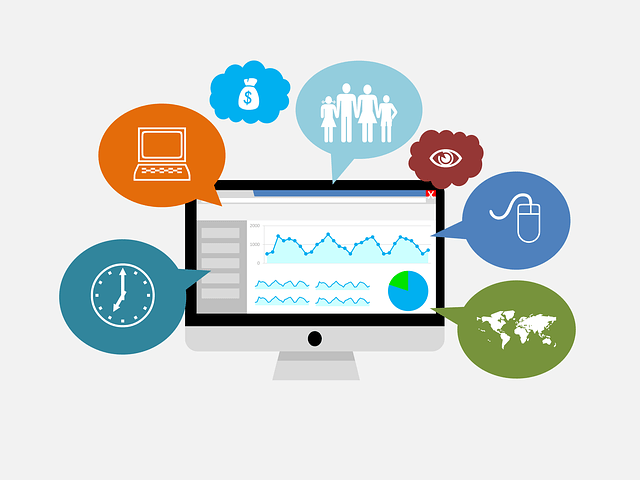
Alright, so in this section, I’m actually going to show you the things that you need to look out for before you actually go ahead and buy a blog or a website.
In general, you want to make sure that you do a lot of research before, and know that all the stats are accurate and true.
Let’s get started:
Decide if it makes sense to buy a website
The first thing that you should do is to decide if it actually makes sense to buy a website. Think about the costs involved and how much money you can afford to spend.
Take into account the niche, and if it makes more sense to start from scratch or not.
Sometimes if you want to come up with a new twist on old niches it won’t be that easy to do if you buy an established website.
I’m talking more about the brand here and the direction of the website content and how it will be aimed at your visitors.
Also if you don’t know the niche too well, sometimes the site will be harder to operate and promote.
For example, writing personal finance articles when you don’t know anything about finance will make things difficult for you in the future. Unless of course, you decide to outsource the content writing part.
But with some niches it’s not just about not knowing what to write about, it’s also about promotion.
Sites in niches that are in niches like gambling, casino, and other adult-related categories, will be harder to promote and sometimes even monetize, due to the many restrictions that ad networks and other platforms impose on websites in those niches.
So yeah, think about the niche for a second, and if it makes sense for you to buy a website in a niche that you have no idea about.
I’m not saying it shouldn’t be done, but you should have a plan and strategy in place for content writing and promotion.
Is the website that you want to buy generating revenue?
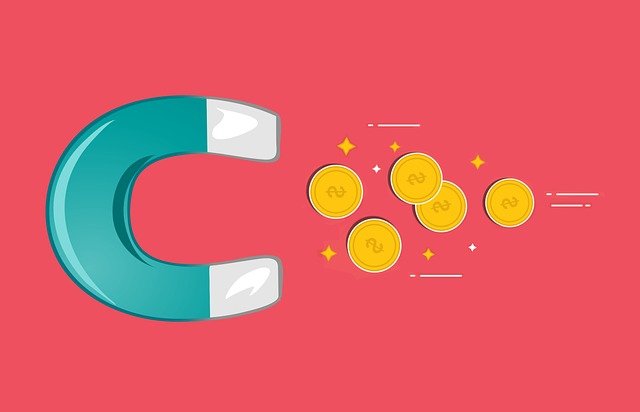
If the site is generating revenue that means it’s probably a good idea to buy it since most of the hard work is already done.
However, the price to purchase the website will be higher and because of that, you want to try as hard as possible to figure out if the revenue numbers are true or fake.
Yes, there are sellers out there who will post fake revenue numbers with the only goal of selling the website for a higher price than it’s actually worth.
So that’s why you need to try and investigate yourself even more.
You can start that by checking out what the website seller has put into the listing. Most of the time you will be able to see their revenue data, along with actual proof like pictures or videos.
You have to carefully examine the revenue data and especially the screenshots because they can easily be faked.
Take into account the seller’s reputation and reviews, and also do your own research and see if the revenue numbers align with the traffic that the site is getting and if it makes sense.
For example, if a site only gets 1,000 visits a month but claims that it makes $10,000 from display ads or something crazy like that, you should be a bit skeptical and ask for additional proof, like a LIVE video walkthrough of the accounts.
Not saying that’s impossible to make $10k with 1k visits, but it’s usually not an easy thing to achieve, especially with display ads.
Here are more things to take into account regarding the website’s revenue:
Check website revenue sources
It’s important to know exactly how the website makes money and what are its revenue sources. Another aspect to look out for is if the income is diversified and spread over a bunch of monetization techniques or if just relies on one of them.
If a website relies on just one revenue stream completely, it might be a bit risky if suddenly that revenue source doesn’t work anymore, or doesn’t pay as good or if your accounts get closed, etc.
So it’s good to know that you can also add additional revenue streams to the site and try to diversify the income a bit, to not rely on just one of them.
Quick example: A website that is only earning money from Google AdSense, might suddenly see a big drop in revenue if their ads CTR go down or if the advertisers pull out from the site leaving the website with a lower CPC suddenly.
Another big thing with AdSense for example is that if your site is not following their guidelines correctly, you might find your account suspended, and now left with a site that earns no money at all.
So because of that, it’s a good idea to already have a few other revenue streams in mind for the website, and maybe look for a website to buy that has 2-3 more monetization techniques and doesn’t just rely on one of them.
Is the revenue stable?
You want to make sure that the revenue the blog gets is as stable as possible or even increasing.
If a site had earned $0 every month for the last 3 months and now suddenly it makes $1,000 a month, will it continue making $1,000 or more a month or will it go back to $0 suddenly?
In reality, you can’t really know, unless the site has been earning that amount for a few months now, you will basically take a chance on it.
Unless the website seller explains to you why the sudden jump to $1k a month happened and if it will be possible for you to maintain that level of revenue moving forward.
What are the profit margins like?
Sure, buying a website that’s making $5,000 a month might look like a good idea, but what if it costs the owners $4,500 in advertising or in product costs and fees to make that $5,000?
That means your profit is going to be $500, and while it’s not a bad sum, the profit margins overall are kinda slim.
This means that any little thing that can go wrong (higher advertising spend, extra costs and fees, returns, problems with payment processing, etc) will put your profit into the negative.
I see this happening all the time with dropshipping websites, for example, that’s why I don’t like the dropshipping model as a whole.
There are just too many things that can make it harder for you to turn a profit, especially if you’re a beginner and have no idea how to optimize campaigns and lower ad spend or deal with orders and returns.
Anyway, the idea is that you want a website that has some higher profit margins related to the costs that are necessary to run the business.
So for example, a site that makes $5,000 a month and costs $500 or $1,000 in hosting or content creation, etc… has a great margin and it has lesser chances of not turning a profit every month. Makes sense?
Analyze the SEO and traffic of the website

Another important aspect that you want to carefully analyze is the SEO and traffic that the blog receives.
You will get to see some of those details from the stats provided by the site seller, but usually, those metrics are not enough.
What you want to do is ask the seller for direct access to Google Analytics for that site. This is very easy for them to do, all they need is your email and after that, you’ll be able to take a more in-depth look at the traffic stats.
Important things to look out for:
Is the traffic consistent or growing?
This one is similar to the revenue stats, you should check and see if there are any sudden dips of traffic that seem unnatural.
A site that averaged 1000 visits a month suddenly spiked to 50,000 for a couple of months and then it was back at 1,000 or even lower, which is not natural. So you want to do some research into that and see why that happened.
It could be that the website owner tried to do some paid advertising to get some revenue going before selling the website, thus inflating the stats a bit.
Or, they legit tried to do paid advertising and make the site profitable that way, but they realized that it wasn’t worth it and maybe the profits were small or non-existent so they stopped.
Another possibility is a sudden increase in SEO traffic that occurred after they did some backlinks that are now gone (even more so if the backlinks were leaning on spam and black hat more instead of natural ones).
Bottom line is that if you want to buy a blog with the traffic you should make sure that the traffic stats are stable and natural and possibly even on the rise.
See what pages are the most popular
If the site only has a few pages or posts that are ranking in the search engines, it means that with any Google update they risk the chance of not getting enough traffic to their blog anymore.
You want to make sure that the number of URLs that get traffic from Google is diversified as well, the same way as the revenue. Meaning multiple URLs that are all ranking and bringing some traffic to the site.
If there are pages that don’t do so well, try to figure out ways to improve them before you buy the blog.
That’s why knowing the niche is important because you can quickly know if the content is sub-par and will immediately see ways on how to improve it and add on top of it.
Were backlinks created naturally?
Make sure that the website has acquired only natural backlinks and didn’t engage in spam tactics or PBN backlinks.
You can check out all the backlinks plus a lot more SEO information on Semrush for any website out there. So make sure to give it a go before you buy a blog.
If the backlinks appear to be of a spammy and blackhat nature, then you should not really consider buying that website as it’s more likely going to suffer in the future and get penalized by Google when they roll out a new update.
Can you get more traffic to the site?
Sure the stats of the current traffic is important, but what’s more important is if you have ways to grow the site even more.
If the niche is too small for example, you might not be able to scale up the traffic too much, even with paid advertising.
So it’s best if you can do some research and check out what volume of traffic is there for that particular niche and if you have ways to increase site visitors in the future.
Usually, that involves you doing SEO but you can also pay for traffic if you want to see faster results.
A good point is to check out some traffic volume with digital marketing tools like Semrush, or Ahref’s keyword tool.
Ideally, you want a website in a niche that has ways for it to grow, so I would avoid super-small and specific niches for now.
Check the website’s history
You don’t want to buy a blog that has been spammed to death just a few months or years ago.
So to make sure that’s not the case you should do some research into the website’s history.
To do that, you can simply use the Wayback Machine which is basically the internet’s archive with snapshots of how websites used to look in the past.
This way you can quickly check and see if the site was spammed, hosted adult stuff on it, was in another language (usually Asian companies will buy expiring websites and just spam them with content and products in their own language).
It makes sense to check for that if you’re interested to buy a blog or a site that has a more family-friendly focus.
For example, this is how Google used to look like when it started out in 1998:
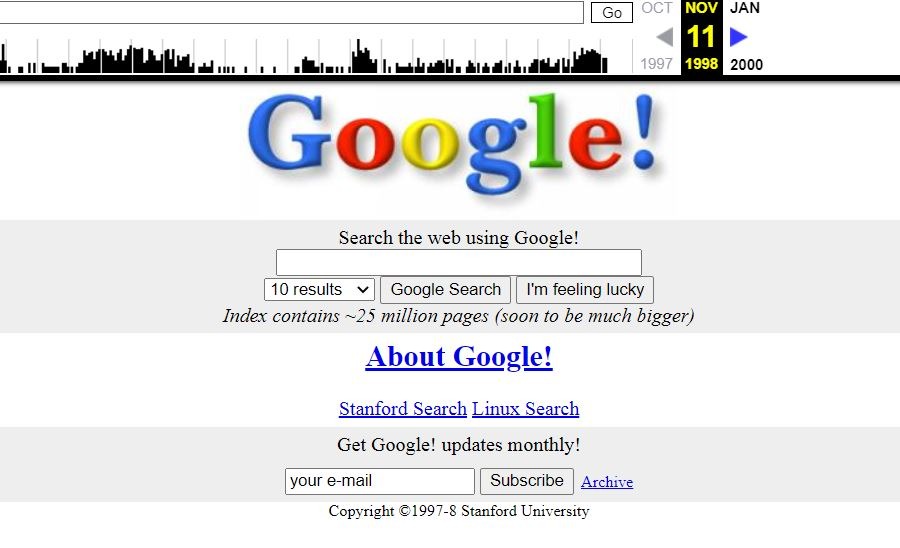
And this is Amazon’s page from 1999:
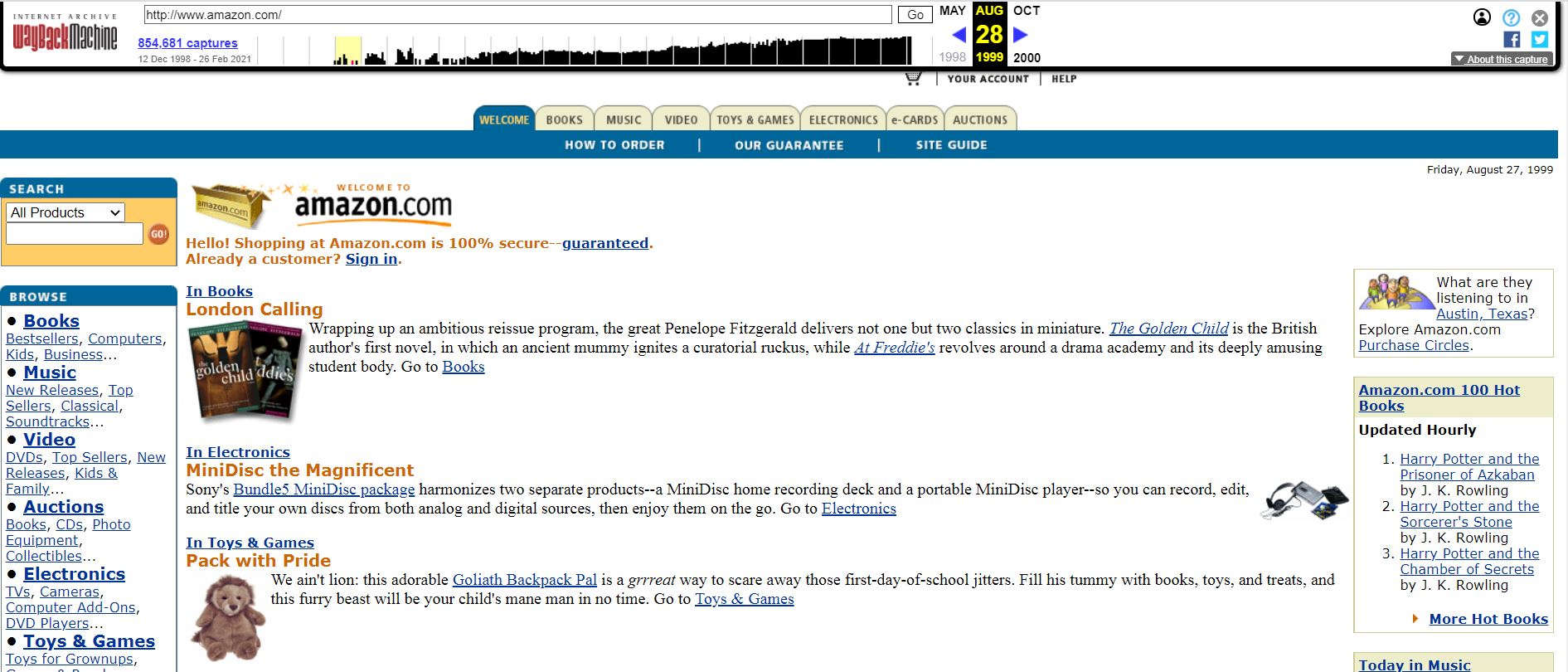
It’s good to see that the history of the domain name matches with the actual content on the website today.
So if you’ve been looking to buy a blog that’s about fishing, and you check out the archive and see that 9 months ago the content on the website was all about fake clothing and pills, then it’s probably been spammed to death and it’s a good indication to stay away and not buy it.
Inspect domain changes and whois data
Similar to checking the website’s history, you also want to check the whois data of the domain name and see if there were any recent changes that might look out of place to you.
There might be cases (although very rare), where some hackers get a hold of the domain name either through DNS or other shady stuff, and then just try to sell the domain and website as if it were their own.
So you want to make sure that the domain and the website you’re going to buy are actually owned by the person who’s selling it to you.
You can easily verify the domain history by going to a website like WhoisRequest History and doing a search for the domain name of the website you’re looking to buy.
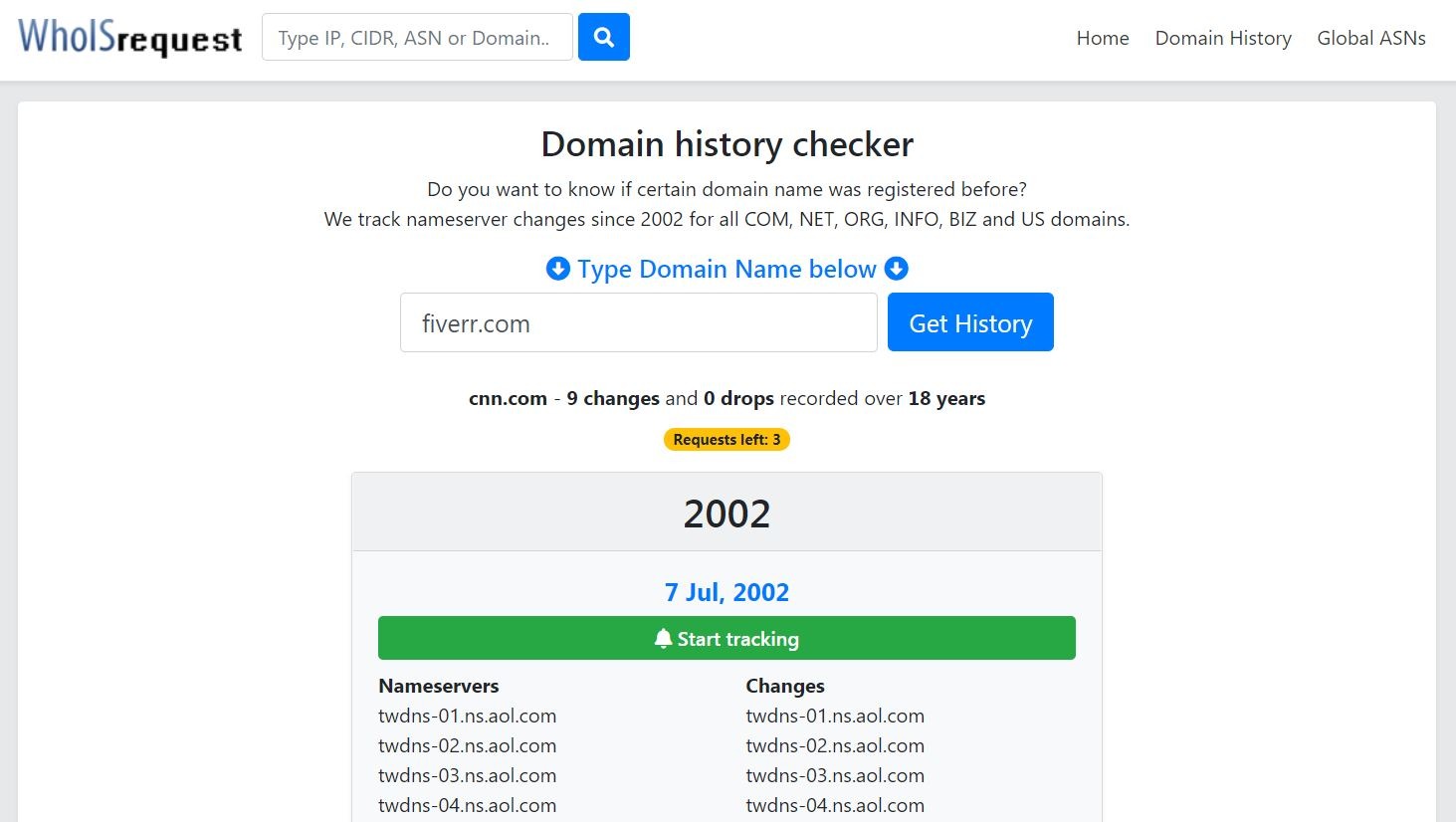
Here you can see a screenshot of Fiverr.com’s domain history since 2007, all the way to today. The changes are all done over the course of a few years and mainly when they switched hosting providers or implemented Cloudflare.
Either way, it’s easy to see that they haven’t changed their domain name settings too recently, so this is a good indication that the seller of a website is actually the owner.
How To Buy A Website or Blog: Step-by-Step Guide:
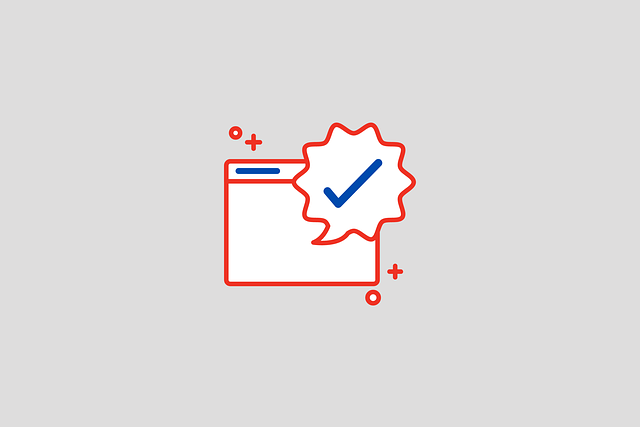
- Go to a website marketplace
- Check for available websites and blogs that are for sale
- Consider if it’s worth buying a website vs creating one from scratch
- Do you know the niche well enough? If not then would you be able to create the content and outsource the work?
- Research everything before you purchase the site. Go through all the steps I’ve mentioned above and don’t rush this.
- What are you exactly buying? Know what’s included in the sale, are you buying just the domain name, the website files, everything together, including social media pages and email list?
- If it’s a big transaction consider getting a contract done.
- Likewise, you should use Escrow.com or similar sites that offer protection both to the seller and the buyer of a website if something goes wrong with the transaction.
- Know how the transfer is being done beforehand. Some sellers might transfer everything to you before they get their money, others will release the content or the domain name after they’ve got paid 50% or so of the money. Really the most important part of this is getting ownership of the domain name.
- See if the seller includes additional support and if they are able to help you in the next few weeks with managing and running the website for free.
- Consider asking the website seller to sign a non-compete contract so that they don’t go ahead and start another site just like that and thus diminishing your investments.
Risks involved when buying a website

Like everything in business and in life, there are some risks that you need to take when buying a blog. There aren’t that many however they are important to understand.
Not recouping your investment
There is a chance that something could happen to the traffic or the monetization of the website and you won’t be able to get your money back in the long run.
That can be the case if the site suddenly drops in rankings or if the main revenue stream gets shut down by various factors.
So you should consider starting out by buying a website that’s not that expensive or for a sum of money that you can afford to lose.
The seller could’ve also provided you with fake stats, regarding the website’s revenue and traffic.
Researching everything beforehand is important because you want to try as much as possible to avoid situations like this.
Trust me, I’ve learned that the hard way.
Getting scammed while doing the transfer
Like I’ve mentioned already a few times, there are some shady sellers out there trying everything that they can in order to sell a cheap website for much more than what it’s worth.
There are also those that simply put a blog or a website up for sale and then take your money or half of the money and never finish the other part of the transfer by giving you the domain name for example.
That’s why an escrow or middleman service is important or at least knowing the seller beforehand and checking out their reviews or building a relationship with them.
Sure it’s harder these days for these types of sellers to scam people, but it’s still happening so because of that you want to try and protect your funds as much as possible before and during the process of buying a website.
So never transfer all your funds before they hand you over the website files and the domain name.
The former owner could launch a similar site
It is a small possibility that after you buy a blog the former owner could just straight-up start a new website in the same category all over again.
This could happen for a number of reasons, one of them being that the former owner doesn’t know what to do next, so they just start doing what they already know that works.
Or they could just build up site after site with the whole intention of selling them on marketplaces like Flippa for example.
Whatever the case might be, and even though it’s a small possibility of this happening, it’s still a good idea to ask the website seller to fill a non-compete agreement.
Buying a blog or a website: Conclusion
As you can see there are many reasons for buying a blog or a website, and there are many things that you need to look out for before you decide to do it.
In any case, I hope this guide helped you, to better decide if it’s worth buying a site and how to do it properly, and trying to avoid getting ripped off or scammed.
If you have any extra tips or questions, leave a comment below. Otherwise, share this with your list or on your social pages, it might help other people who are in the process of acquiring a site or a blog.

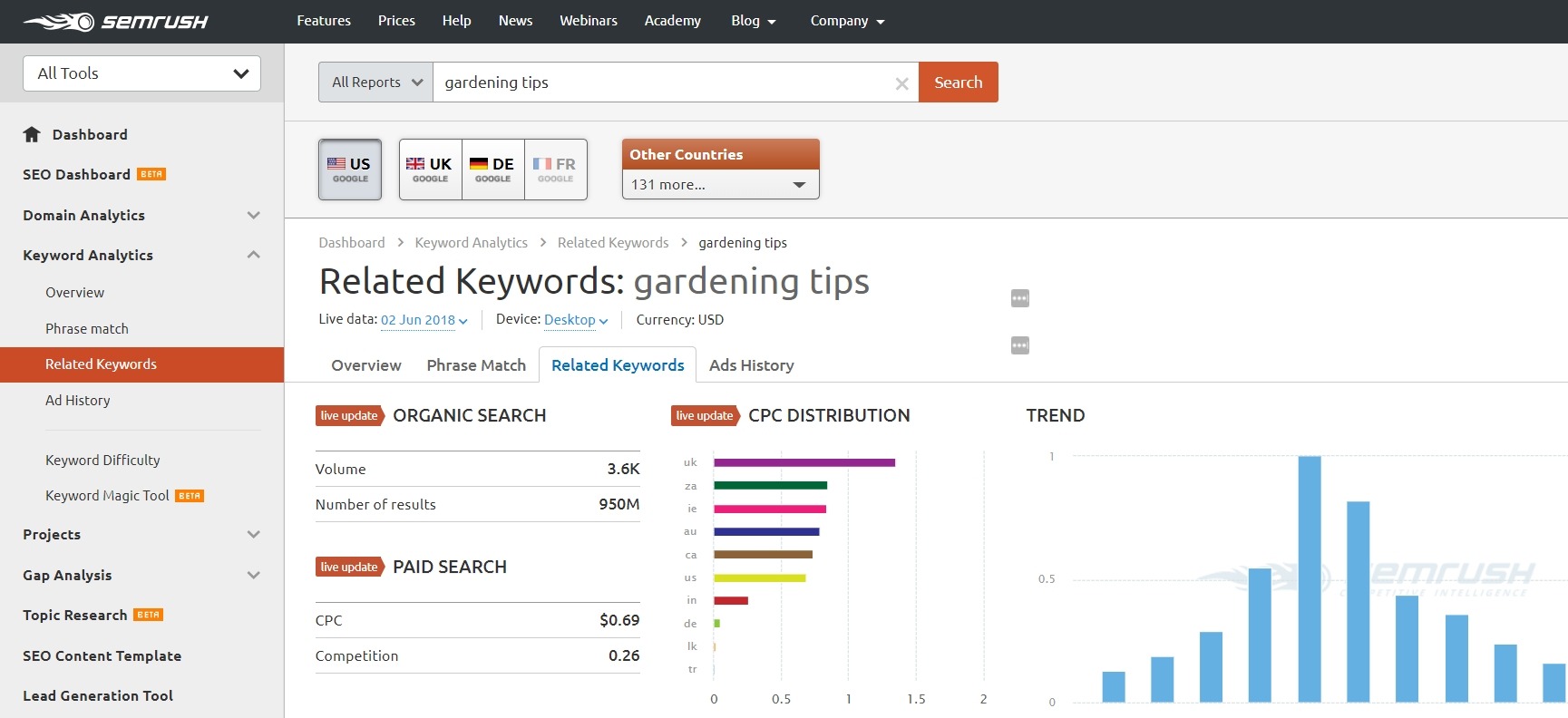
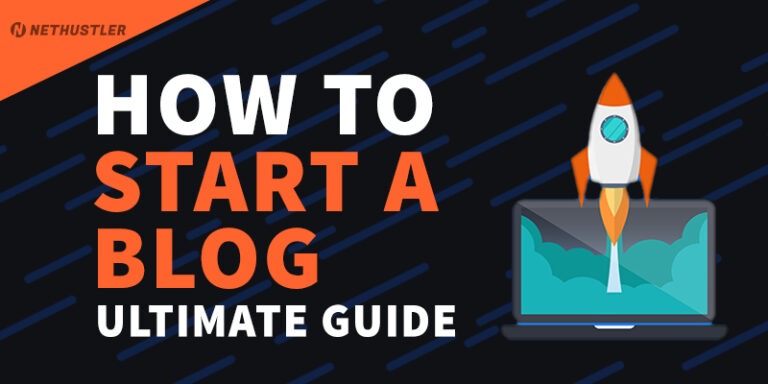
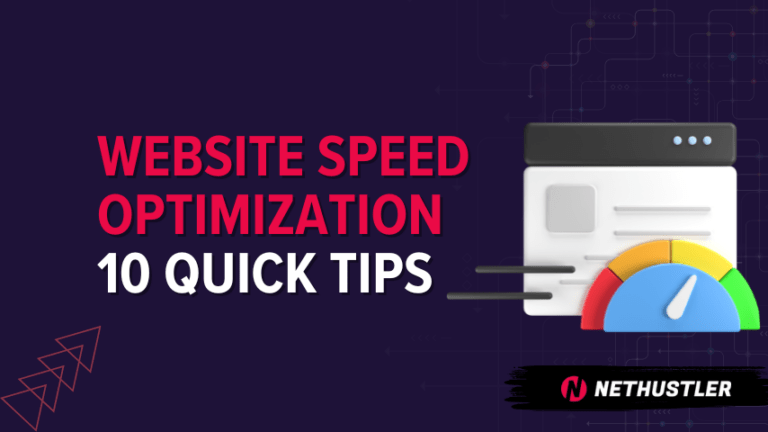
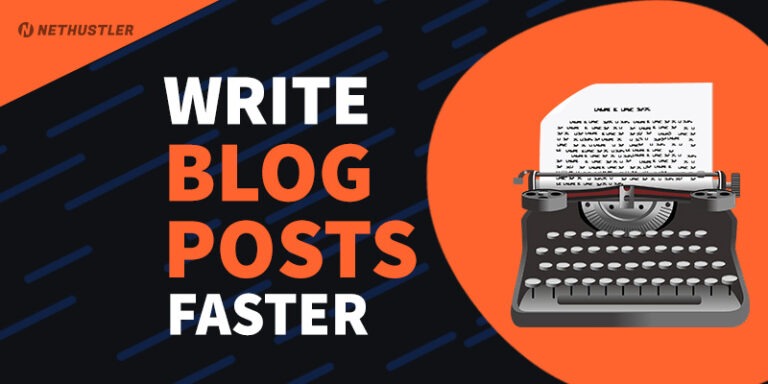
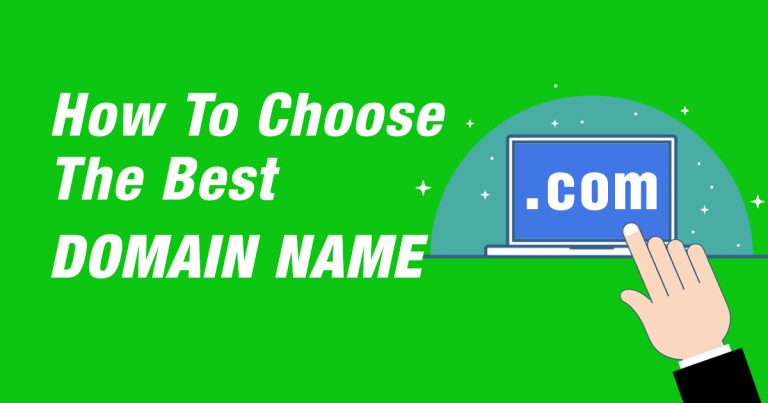
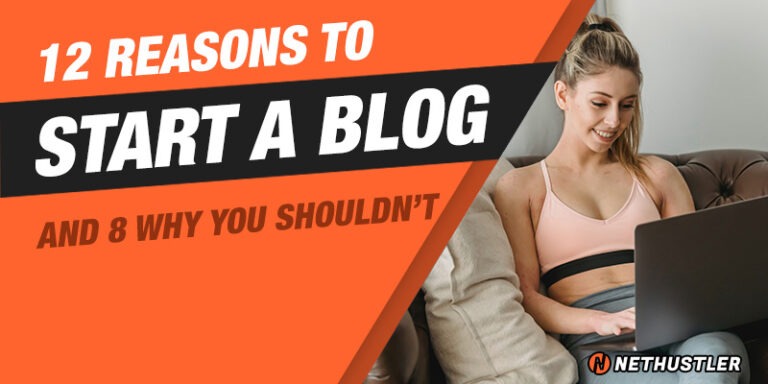
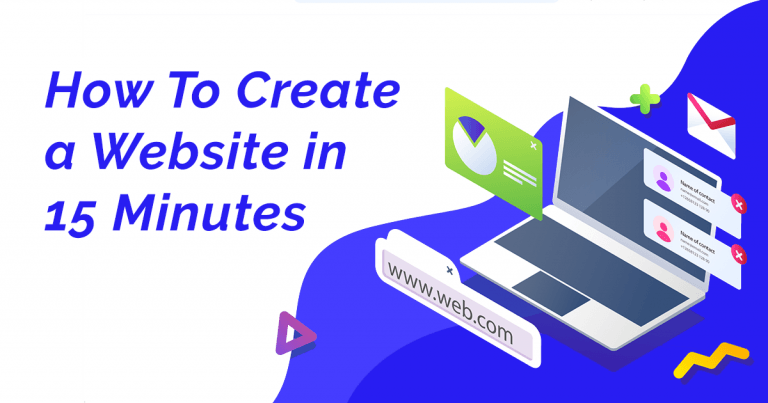
An excellent detailed guide to buying websites at the best price! Thank you!
Cheers